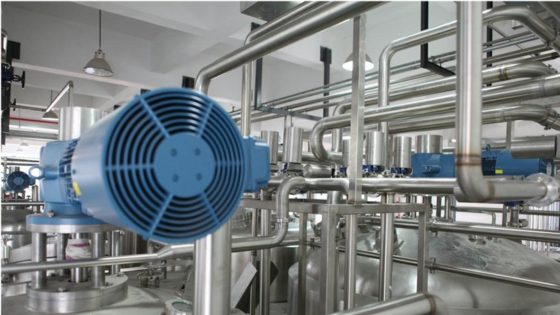Improving factory operations is paramount for enhancing productivity, reducing costs, and maintaining competitive advantage. By analyzing current workflows, integrating new technologies, adopting lean principles, investing in employee development, and optimizing supply chains, factories can achieve significant advancements. Each of these areas offers unique opportunities to refine processes and boost overall performance. Identifying which strategies to implement requires careful evaluation of the factory’s specific needs and goals. Keep reading to discover how you can elevate your factory’s operations to the next level.
Assessing Current Operations to Identify Improvement Areas
To begin optimizing factory operations, a comprehensive assessment is crucial. This involves a detailed examination of current production processes, workflow efficiency, and resource allocation. Recognizing bottlenecks, redundant tasks, and any other shortcomings enables the formulation of targeted intervention strategies.
Employing data analytics can assist in pinpointing inefficiencies with precision. Assessing machine performance, employee productivity, and the rate of defects can provide valuable insights into where improvements are necessary. It is also important to evaluate the effectiveness of existing communication systems, which can often be enhanced with solutions like an Avaya business phone.
Involving staff in this assessment phase can also be beneficial, as they are most familiar with daily operations. Their feedback can reveal practical challenges and propose realistic solutions that may not be immediately apparent to management.
After the assessment, it’s essential to develop a clear and actionable plan that addresses the identified issues. Set measurable goals for improvement, and outline the steps required to achieve them. Monitoring progress against these goals will be key in ensuring the plan’s successful implementation.
Streamlining Supply Chain and Inventory Management
Streamlining the supply chain is another integral aspect of improving factory operations. Developing strong relationships with suppliers, like a fuel supplier in Saskatchewan, ensures a reliable flow of materials such as diesel fuel and reduces the risk of production delays.
Optimizing inventory management practices minimizes overstocking and understocking situations, which can lead to wasted space or halted production lines. Just-in-time (JIT) inventory strategies can be implemented to address these issues by aligning material deliveries with production schedules.
Advanced technologies, such as RFID tracking and IoT devices, provide real-time insights into inventory levels and supply chain performance. These technologies can help predict and respond to potential issues before they impact production.
Finally, efficient logistic operations are vital for timely delivery of finished goods. Streamlining shipping and distribution methods can improve customer satisfaction and enhance a company’s competitive edge.
Integrating Automation for Enhanced Efficiency
Integrating automation into factory operations can radically improve efficiency. Automation can take over repetitive, time-consuming tasks, allowing the human workforce to focus on more complex and strategic activities. This shift can result in higher output and increased consistency in product quality.
Robotics and programmable machinery are at the forefront of production automation. They not only speed up the manufacturing process but also reduce the likelihood of errors that can occur with manual labor. However, the integration of these technologies must be executed thoughtfully to complement rather than disrupt existing workflows.
Software solutions, too, play a vital role in optimizing operations. Manufacturing execution systems (MES) and enterprise resource planning (ERP) systems enable better planning, control, and analysis of industrial processes, leading to more informed decision-making.
Enhancing Workforce Training and Engagement
Developing a skilled workforce is essential for modern factory operations. As new technologies and methodologies are adopted, continuous training ensures that employees stay proficient and confident in their roles. Providing up-to-date training can also help reduce errors and improve safety in the workplace.
Beyond technical skills, fostering a culture of engagement where employees feel valued and part of the company’s success is crucial. When workers are engaged, they are more likely to collaborate, suggest improvements, and adapt to changes effectively.
Mentorship programs and opportunities for career growth can also support workforce development. By investing in the advancement of its employees, a factory can build a stronger, more dedicated team.
Recognition and rewards are powerful tools for maintaining high morale and motivation levels. Celebrating successes, whether big or small, can encourage a sense of accomplishment and pride in one’s work, contributing to higher satisfaction and retention rates.
Altogether, improving factory operations is a multifaceted endeavor that requires attention to detail, strategic planning, and a commitment to continuous improvement. With the right combination of technology integration, lean manufacturing adoption, employee development, and supply chain optimization, factories can rise to the challenges of modern production demands and thrive in an increasingly competitive landscape.













